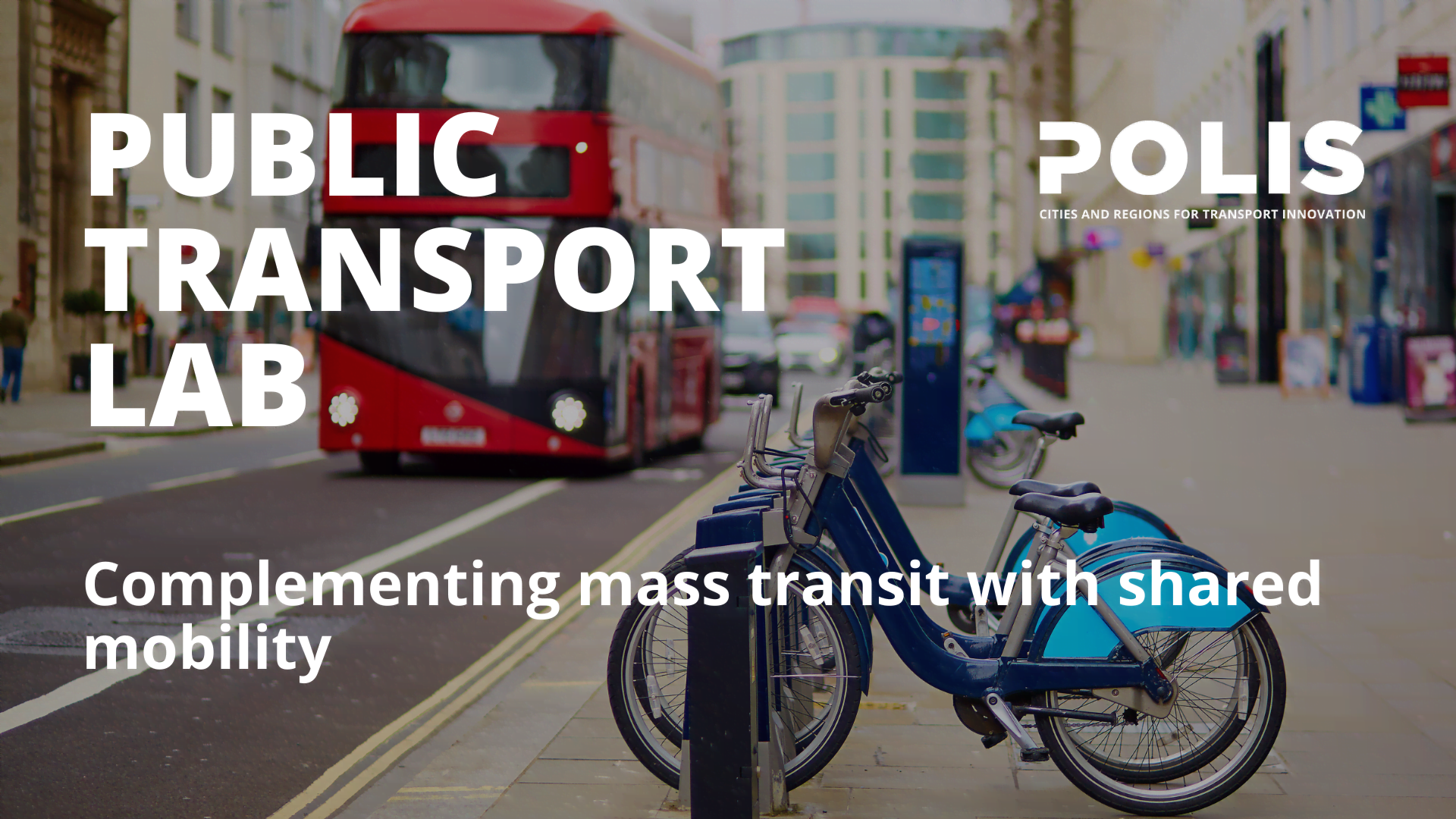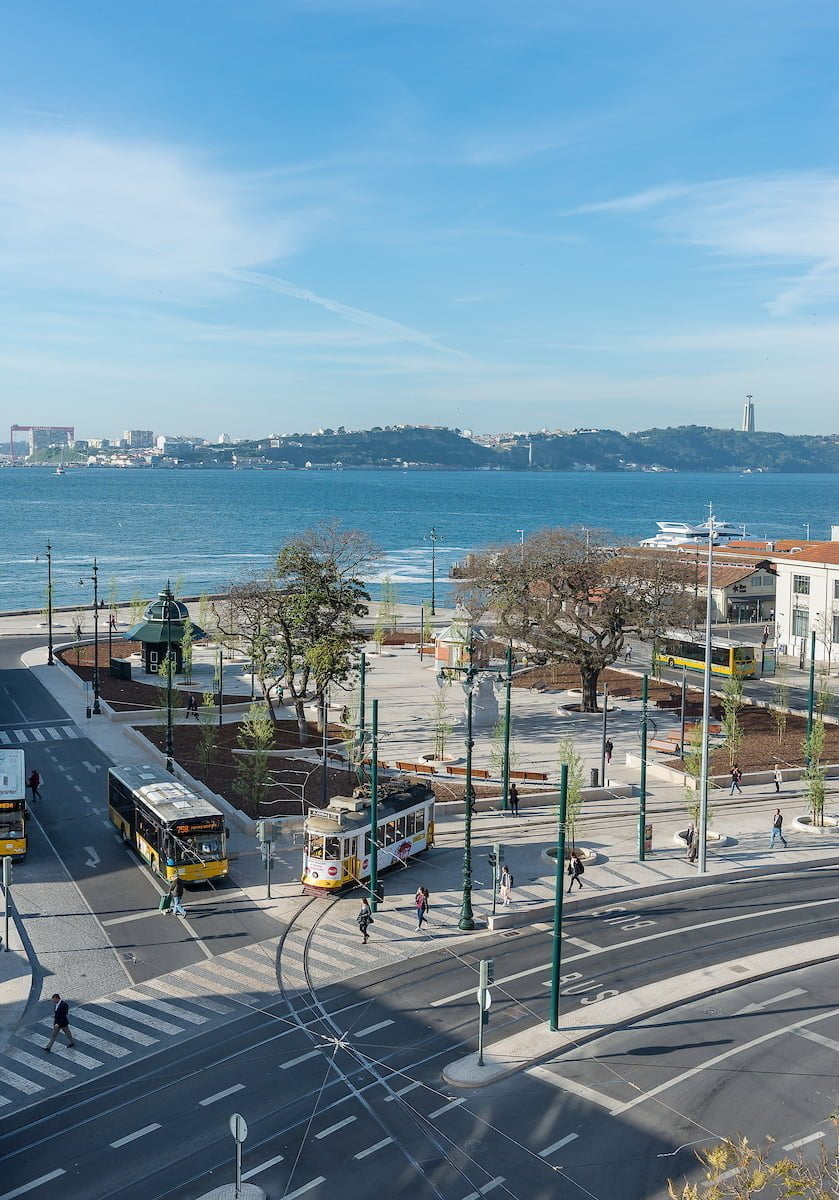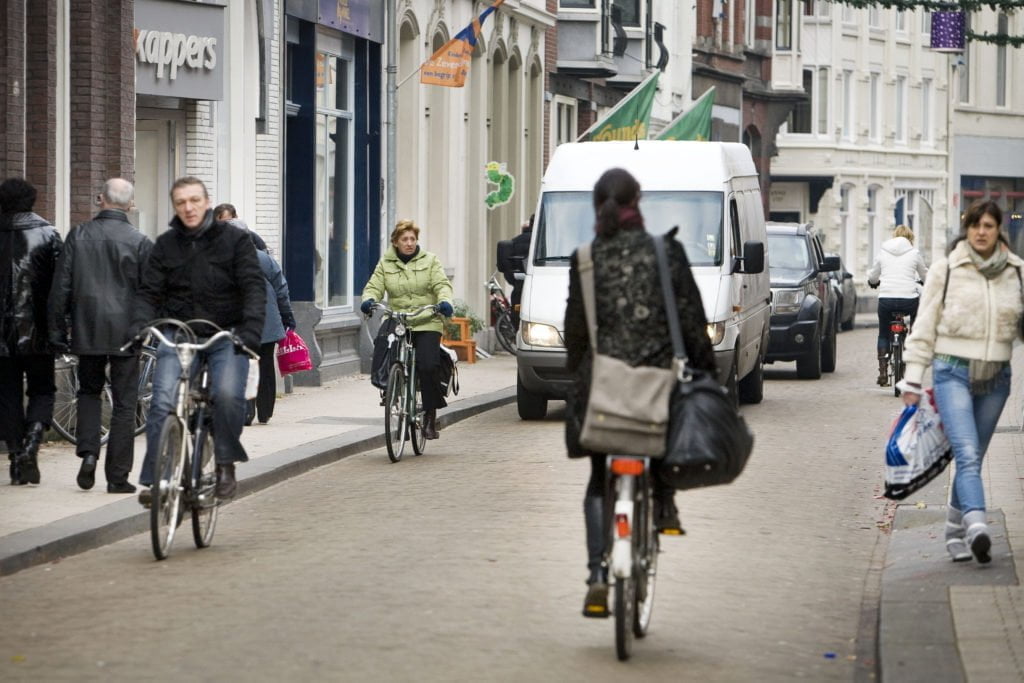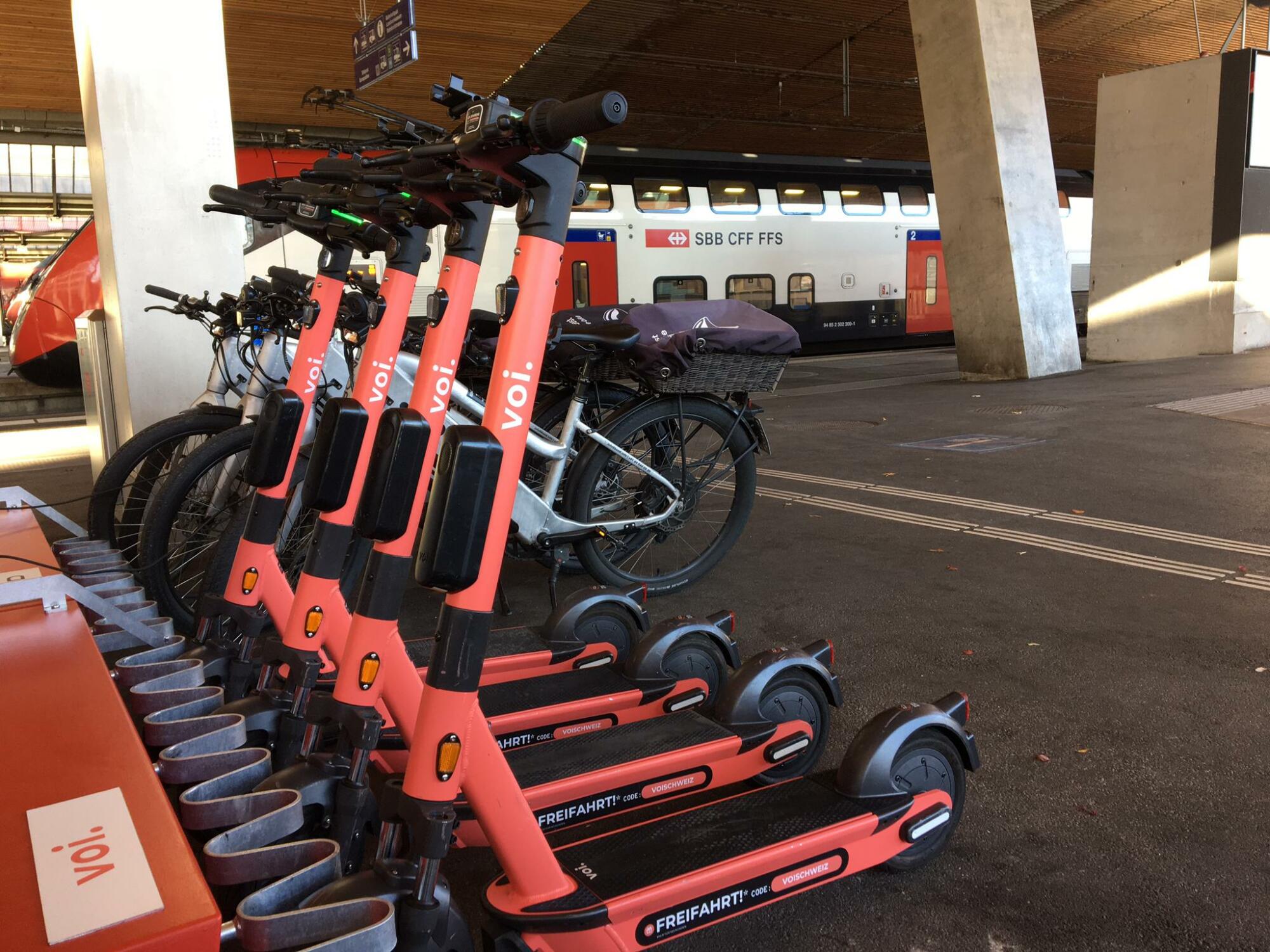Sharing the load: Public Transport Lab examines new modal mixes
Public Transport is the backbone of Urban Mobility, yet not necessarily the best tool for all travel demands. Shared mobility is growing in many cities, deploying shared cars, motorcycles, bikes, e-bikes, scooters and e-scooters – this opens a world of new opportunities to grow public transport’s catchment areas, and to develop more efficient offers for low-density areas and off-peak times. As long as cooperation presides.
POLIS’ Public Transport Lab examined opportunities for partnerships between these services- creating a reliable and integrated transport network across our cities and regions.
Bus, rail, and subways have dominated public transport for the last century- and are here to stay – it is, after all, the most efficient way of transporting passengers sustainably and affordably.
However, there is much room – and demand – for flexibility, particularly in low density areas, off-peak hours, and for users with more complex travel patterns
This is where shared mobility comes in. Local authorities and transport operators across Europe- and beyond- are beginning to establish partnerships with shared mobility outlets for first and last mile solutions… which do not require a car!
From Bolt to Uber, shared mobility is being leveraged to support mass transit; however, this is a novel phenomenon, and much uncertainty remains. So, POLIS did what we do best, and brought everyone in for a frank discussion on the way forward.
POLIS members Manchester and Lisbon provided a city perspective, while Noord-Brabant revealed how regions are approaching the topic. Meanwhile POLIS associate member, SBB- the Swiss Federal Railway carrier- highlighted how public transport providers are approaching the issue. Finally, from the shared transit perspective, Uber and Bolt gave their input.
Our speakers were put through their paces, as we picked their brains on developing intermodal, connected sustainable mobility ecosystems.
Across the session, we addressed the challenges head on- with some very interesting results…
The lay of the (shared) land: What are cities doing?
Lisbon and Bolt’s micromobility pass
The way cities and regions offer transport is changing rapidly. As App-based mobility services such as car and ride sharing- and Mobility as a Service (MaaS) through single or integrated ticketing services- bring new possibilities to expand and complement existing mobility- cities are turning their heads.
Growing the capacity but also the flexibility of Public Transport is key to its future, and that means exploring and embracing new ways of operating and deploying services. Shared mobility gives users the opportunity for instant access to vehicles which, when used in tandem with mass transit, offer a sustainable and smart mobility ecosystem.
However, this does not mean diving in blindly; it is relatively unchartered territory for many, and negotiating the way forward is a complex process.
The Portuguese capital- and POLIS member city- Lisbon has taken some important steps when it comes to integrating shared mobility and public transport. In partnership with Bolt, the city has added a shared mobility option to its public transit pass. Bolt is a mobility company offering vehicle for hire, micromobility, car-sharing, and food delivery services, operating in over 300 cities in 45 countries.
“Since the micromobiltiy industry took off, we have been a first and last mile solution, but we have long lacked the integration required to truly achieve this goal,” said Andrea Vota, Public Policy Manager at Bolt.
This appears to be changing. Now in Lisbon, travellers can now use a single pass to access public transport and scooters and electric bicycles across the city.
Effective partnerships have been core in developing such integrated transit. This pass is the result of a partnership between Bolt, the City of Lisbon and TML, Lisbon’s new Metropolitan Transport Authority – and, as explained TML’s Catarina Marcelino, is the first step in a longer path.
Greater Manchester’s eHubs
Meanwhile, POLIS member Transport for Greater Manchester (TfGM) is playing host to two e-scooter trials and are developing a deployment plan.
“We are on the right trajectory, but there is still a lot to do!” said Ian Inglis from TfGM.
Manchester’s effort to create a multimodal, seamless offer is also being developed through the eHubs project. eHubs are on-street locations that bring together e-bikes, e-cargo bikes, e-scooters and/or e-cars, offering users a wide range of options to experiment and use in various situations.
Creating regional connections
POLIS member, from POLIS’ member Province of Noord-Brabant is also getting in the shared mobility game.
Regions and provinces will be critical players in the shared mobility. Most city centres are already very well served by public transport and good walking environments. However, suburbs and peri-urban areas are key nodes in modal decisions- and right now, the car remains king.
The Province of Noord-Brabant revised its vision on mobility, taking a new look at the role of public transport (and the PTA) in it. They’re now in the process of implementing this vision. There are several challenges to tackle, and as John Kuijs explained, “there is more to life than buses – we need to make the most of several tools and offers, and in that sense, more is more”.
Operators want in! Intermodal partnerships
Integrating shared mobility is a new field for many public transport operators, but they too are initiating partnerships with shared services.
POLIS member, the Swiss Federal Railways SBB has also been promoting integrated digital booking services, currently conducting exploratory initiatives. Smaller cities, regions and peri-urban areas- where improvements in public transport are often required- have been at the forefront of SBB’s focus.
“We see much potential in these regions for developing innovative first and last mile solutions, encouraging people onto mass transit and away from private cars,” asserted Andri Wienandts, Project Manager at SBB.
“Mobility hubs are part of a city’s identity, and we are trying to open them up, using physical and digital spaces in new and connected ways.”
SBB joins several other POLIS member operators who are seeking to connect their offerings to shared and micromobility.
EMT Madrid’s ‘Madrid Mobility 360’ app, offers the user information about the occupancy level of buses, as well as allowing payment for bus tickets and shared mobility options, BiciMAD and BiciMAD go- a process the operator discussed in another Public Transport Lab webinar.
Reporting on their progress, EMT revealed the benefits of such synthesis, but outlined the challenges they had faced in developing their platform.
Shared services speak: Uber public transit group
Over the last few years, the ride hailing app has been strengthening its relationships with public transport operators- seeking to bring flexibility to the largely fixed operating costs of transit operators.
“I think the exciting thing is Uber and mass transit can compliment one another very well, to connect transit corridors with less covered areas- both in time and space,” said Arjan van Andel, who is working on Public Transit Partnerships at Uber.
Uber has already begun developing these partnerships in Dallas and Denver. In 2019, Denver became the first city in the world to start selling public transit mobile tickets through the Uber app. This model has been replicated in other cities across the globe- in what Uber has dubbed the “Uber MaaS solution.”
“Can Uber save public transport?” fast hit the headlines around the world when this service was rolled out, a question this webinar put to the test.
What is the way forward? Navigating the risks, Boldness brings benefits
Shared mobility is a new field, and those making investments in these partnerships are navigating new territories. Fear of backlash and financial uncertainty are obstructions for introducing these services.
Designing attractive mechanisms, proper ride arrangement, and building trust among unknown passengers in online systems are 3 core challenges cities, operators and shared services face.
“It takes guts from local municipalities,” admitted Kuijs
Inglis from Manchester agreed. “This can be a political and financial risk,” he admitted.
However, both maintained the value- and importance- or these new ways of working if cities and regions are to achieve emissions reduction goals and preserve public transport systems.
The operators agreed.
“We need to understand what we are gaining when we create these connections between shared mobility and mass transit,” said Wienandts from SBB.
Translating loss to gain
Reducing these risks requires effective communication to users about services and how changes can benefit citizens’ mobility. This is a process of community building.
As services adapt and car travel is curtailed, there will inevitably be a sentiment of loss of mobility- loss of access with their car, loss of parking spaces and higher costs of parking, loss of traffic lanes. As services have shifted during the pandemic, we have witnessed the confusion and animosity which emerges when these changes are not communicated coherently.
Yet, this should not be the narrative. Rather environmental and social benefits should be placed front and centre, space, health, community, local economic life and more.
“We have to entice users with the gains,” said Kuijs.
Inglis agreed.
“You can provide all the mass transit infrastructure you want, but a lot of people will need access to spaces which are not served. At present this means using a car; so, if we seek to change this, such shifts need to be communicated and discussed openly and coherently.”
This means addressing the impact on affordability of services. Affordability and inclusivity are at the heart of public transport. Therefore, when private shared mobility services are inherently profit making outfits, how we ensure transit remains affordable for users?
“We need to look at costs holistically too,” asserted Van Andel from Uber. “Shared options for short distances, combined with the main transit networks can be more affordable than private cars.”
Key takeaways:
Staying within carbon budgets means BIG action- Shared mobility can have a “Quick win” for reducing carbon emissions from urban transport, but such action needs to take place within a comprehensive plan,
Working towards the same goal: Ensuring integrated visions and practices which pursue the common goal of sustainable and smart mobility means maintaining conversations between all partners
Don’t run away from risks: There are risks in embarking on these initiatives, and they need to be acknowledged, but this cannot mean shunning action, or obscuring the real costs and benefits. Instead, operators, cities and shared services need to address them head on.
Communicate, communicate…communicate: Changes in transport services can prompt confusion and animosity amongst users when misunderstandings emerge. Decision makers, need to construct a clear dialogue to avoid this.
Want to know more?
Across POLIS’ Public Transport Lab webinars and working groups, we have been exploring the challenges and opportunities posed by shared mobility for the future of sustainable urban transport. If you want to find out more about this topic and how POLIS is assisting local authorities, operators, the industry and others in navigating this process contact Pedro Homem de Gouveia or Daniel Herrera.





